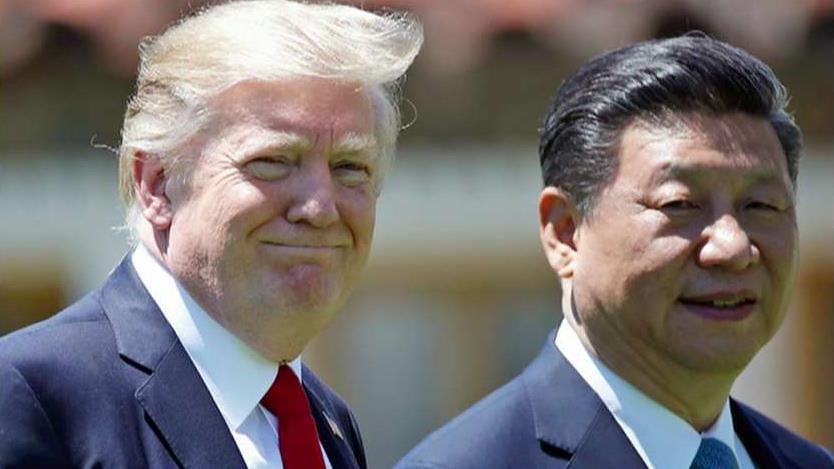Trump-Xi trade talks at G20: America's biggest weakness is no big secret
Amid heightened tensions Presidents Donald Trump and Xi Jinping are expected to meet and discuss trade during the G20 summit in Osaka, Japan later this week. While it is highly unlikely that Beijing would use it, there has been a good deal of discussion about its "Trump card" -- a possible China Treasury-dump. It should however serve as a wake-up call, though Sun Tzu didn’t mention it in "The Art of War," it is pretty solid advice not to have to borrow from your competitor.
The U.S.-China economic relationship is a nuanced, complicated and highly consequential one, and thus our dependence on them (as well as other nations many of with whom we are not geopolitically aligned) for a significant portion of our government financing, is not prudent in this time of heightening global tensions.
We will see what, if anything, comes from the talks this week but at this point the trade war with China seems increasingly unlikely to come to a quick resolution, and already this has played out longer than expected with many surprising turns.
Thus far, tariffs are the weapon of choice, which play to America’s advantage given that last year we imported $540 billion of goods from China while they imported $120 billion from us, giving us a much larger base on which to levy the taxes. But the playing field can be broadened, and as the Chinese run out of options for tightening the tariff noose, they are certainly contemplating their other options.
Here, the U.S. national debt is a glaring vulnerability. Last year the U.S. borrowed $779 billion in total; this year we are on track to borrow $896 billion (unless we pass legislation to borrow even more). Foreign nations own roughly 40 percent of our debt held by the public. The Chinese who have now accumulated more than $1 trillion in Treasuries (more than any other country outside the U.S.), own about 9 percent of debt held by the private sector.
If China wants to choose to shake up the trade war by selling some of their vast accumulation of U.S. Treasuries, it has the power to do so. The signal it would send would give markets, which don’t like uncertainty, a considerable jolt. And the decline in demand could have a deeper effect on interest rates and the economy.
Given how much debt we already owe, a one percent increase in rates costs the U.S. $180 billion a year in additional interest payments alone—roughly the budget of the U.S. Army.
Not a foolproof plan
This would by no means be a foolproof plan for China. A massive sell-off would likely hurt their own Treasury-heavy portfolio. And given the stability and relatively high returns of U.S. debt, other countries might well make up the difference.
Over the past few years, the share of Treasuries owned by foreigners has dipped with no noticeable response. Furthermore, it would leave China with fewer attractive options for where to park all their money.
But our past years of engagement have shown us that we are not completely aware of the game we are playing and we underestimated China’s resolve. Our belief that open markets would lead to a more democratic regime was misplaced as we underestimated the simmering resentment about Western influence.
We are redefining our relationship with a powerful nation who is far better at playing the long-game than we are, and frankly we don’t know what shorter-term sacrifices they might be willing to endure.
What Tzu did say was: “All warfare is based on deception. Hence, when we are able to attack, we must seem unable; when using our forces, we must appear inactive; when we are near, we must make the enemy believe we are far away” ... not exactly reassuring.
Given how high the stakes are on many of the issues we are currently competing on from technology, to global influence, we should not be taking needless risks. The U.S. has been playing our own domestic short-sighted game for years now where our internal partisan divisions have led to a fiscal environment where both parties try to win over voters with free tax cuts and spending increases—future be damned. And as we become less willing to pay for our own government, we become more dependent on others to do so.
We don’t know whether China will go as far as to weaponize their Treasury holdings. Maybe they won’t. Or maybe they will wait until we are in a recession, or until they want to invade Taiwan.
CLICK HERE TO GET THE FOX BUSINESS APP
Just the recent discussion of these scenarios shows we should be less sanguine in assessing our own weaknesses. Our national debt is most certainly one of them.
Maya MacGuineas is the president of the nonpartisan Committee for a Responsible Federal Budget.




















